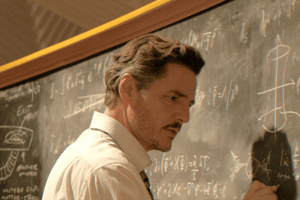Podcast
Questions and Answers
What does Subjectivism claim about ethical statements?
What does Subjectivism claim about ethical statements?
- They are based on cultural norms.
- They are inherently flawed.
- They are universally accepted truths.
- They are statements of personal opinion. (correct)
What is a major weakness of Subjectivism?
What is a major weakness of Subjectivism?
- It recognizes universal ethical truths.
- It promotes a hierarchy of ethical standards.
- It can easily accommodate ethical disagreements.
- It assumes everyone has infallible opinions on ethics. (correct)
Cultural Relativism posits that ethics are:
Cultural Relativism posits that ethics are:
- Relative to individual beliefs.
- Universal across cultures.
- Absolute and unchanging.
- Relative to one's culture. (correct)
What does the Diversity Thesis in Cultural Relativism suggest?
What does the Diversity Thesis in Cultural Relativism suggest?
According to Cultural Relativism, what is the basis for determining ethics?
According to Cultural Relativism, what is the basis for determining ethics?
Which statement reflects a misunderstanding of Subjectivism?
Which statement reflects a misunderstanding of Subjectivism?
Which example best illustrates the Dependency Thesis of Cultural Relativism?
Which example best illustrates the Dependency Thesis of Cultural Relativism?
What must one possess in order to be morally responsible for an action?
What must one possess in order to be morally responsible for an action?
Which of the following best describes causal responsibility?
Which of the following best describes causal responsibility?
In the context of moral responsibility, which example illustrates a lack of choice?
In the context of moral responsibility, which example illustrates a lack of choice?
Which type of determinant is NOT mentioned in the context provided?
Which type of determinant is NOT mentioned in the context provided?
What is implied about free will concerning ethical actions?
What is implied about free will concerning ethical actions?
How do second-order desires relate to free will?
How do second-order desires relate to free will?
What scenario exemplifies the idea of an 'Act of God' in moral discussions?
What scenario exemplifies the idea of an 'Act of God' in moral discussions?
What dilemma does Stacy face that illustrates competing desires?
What dilemma does Stacy face that illustrates competing desires?
What does understanding the 'moral object' require?
What does understanding the 'moral object' require?
Why is motive considered essential in human action?
Why is motive considered essential in human action?
How does the timing of an action influence its ethical analysis?
How does the timing of an action influence its ethical analysis?
What role does geography play in ethical decision-making?
What role does geography play in ethical decision-making?
What is the purpose of identifying viable alternatives in ethical analysis?
What is the purpose of identifying viable alternatives in ethical analysis?
What question addresses the potential outcomes of an action?
What question addresses the potential outcomes of an action?
What does the question of 'who' imply in ethical decision-making?
What does the question of 'who' imply in ethical decision-making?
What is NOT a component of understanding moral objects?
What is NOT a component of understanding moral objects?
What concept allows Stacy to analyze her competing desires and make a decision?
What concept allows Stacy to analyze her competing desires and make a decision?
What does a person demonstrate when they correctly order their first-order desires into second-order ones?
What does a person demonstrate when they correctly order their first-order desires into second-order ones?
Why might the Joker be argued to lack free will?
Why might the Joker be argued to lack free will?
What is a critical aspect of moral choice illustrated in the CEO example?
What is a critical aspect of moral choice illustrated in the CEO example?
According to the content, how is the morality of an action determined?
According to the content, how is the morality of an action determined?
How would one describe the Joker's potential inability to resist his desires?
How would one describe the Joker's potential inability to resist his desires?
What does it imply if individuals make immoral choices by incorrectly ordering their desires?
What does it imply if individuals make immoral choices by incorrectly ordering their desires?
What dilemma is presented regarding the Joker's character?
What dilemma is presented regarding the Joker's character?
What distinction does John Stuart Mill make regarding types of pleasure?
What distinction does John Stuart Mill make regarding types of pleasure?
What is the primary action involved in Act Utilitarianism?
What is the primary action involved in Act Utilitarianism?
What is a core concept in Rule Utilitarianism?
What is a core concept in Rule Utilitarianism?
Which of the following could be a challenge to utilitarianism?
Which of the following could be a challenge to utilitarianism?
According to Mill, why might an older person not want to trade places with a younger one?
According to Mill, why might an older person not want to trade places with a younger one?
What is an essential step when employing Act Utilitarianism?
What is an essential step when employing Act Utilitarianism?
What criticism highlights the demanding nature of utilitarianism?
What criticism highlights the demanding nature of utilitarianism?
What is a potential justification that Act Utilitarianism may present for controversial practices?
What is a potential justification that Act Utilitarianism may present for controversial practices?
Flashcards are hidden until you start studying
Study Notes
Subjectivism
- Ethical statements reflect personal opinions, not objective truths.
- This view renders ethical arguments futile as all opinions are considered equal.
- A statement like "X is right" translates to "I like X."
- Fails to address ethical disagreements, as disagreements imply a belief in objective rightness, not merely difference in preference.
- Incompatible with the observation that people change or question their ethical beliefs.
Cultural Relativism
- Morality is relative to cultural norms. No universal ethical standards exist.
- Ethical standards vary across cultures (Diversity Thesis).
- What is morally right depends solely on one's culture (Dependency Thesis).
- Determinants of cultural morality are varied (genetic, psychological, theological, causal).
Determinism and Responsibility
- Determinism challenges moral responsibility by suggesting a lack of free will.
- Causal responsibility focuses on the cause-and-effect of actions.
- Moral responsibility involves deserving praise or blame for actions, requiring free will.
- Only actions freely chosen warrant moral praise or condemnation, not accidental ones.
Free Will and Moral Responsibility
- Moral responsibility requires free will, specifically the ability to make second-order desires (desires about desires).
- Second-order desires involve reasoned choice among competing desires.
- Individuals are morally responsible for the outcomes from their chosen ordering of desires.
- The lack of capacity for second-order desires, as with the Joker, challenges moral responsibility.
The Reality-Revealing Questions
- Actions are neither inherently good nor evil; their moral value is context-dependent.
- Moral analysis requires examining the action's: What (the act itself, free from bias), Why (motivation and intention), How (method and integrity), Who (identities of those involved), Where (location), When (timing), Foreseeable effects, and Viable alternatives.
Utilitarianism
- Focuses on maximizing overall happiness or well-being (utility).
- Mill distinguished between higher and lower pleasures, arguing higher pleasures are qualitatively superior even if less intensely pleasurable.
- Act Utilitarianism: assesses each action's utility and chooses the action maximizing overall good.
- Rule Utilitarianism: focuses on establishing rules that maximize overall good when followed.
- Challenges to Utilitarianism include potential conflicts with justice and rights, and the excessively demanding nature of always striving for maximal utility.
Studying That Suits You
Use AI to generate personalized quizzes and flashcards to suit your learning preferences.





